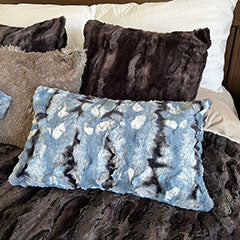



The Spools are Still Spinning at Pandemonium!
How did we let this happen?
Today’s blog will be a little sad. Damage is so high that who knows when we will see the full recovery. Somehow every single person’s topic of conversation suddenly became the Corona virus. Everyone’s an expert on pandemics now. You can find multiple on your social media pages. And no wonder all your friends are extremely competent on this, all they’ve been reading about is Covid-19.
Meanwhile “people of art”, along with multiple other professionals, are shutting down their small businesses. It made me so sad to read that New York Fashion Week’s biggest new talent “Sies Marjan” closed. The fashion industry already had a lot to improve before the world flipped upside down.
In the 1980s American brands started taking their manufacturing overseas. I have been researching and have not found a single big fashion company that manufactures in the USA. One exception is “New Balance” which does produce in America, however its entire local production only covers 25% of its American sales.
Considering the fact that you can find “New Balance” everywhere in the world, the share of locally manufactured goods is very small. Although that quarter of “Made in America” privilege probably was a big push to its trending for few years among hipsters’ fashion that started around 2012.
According to “The Clean Clothes Campaign”, which is a garment industry's largest alliance of labor unions and non-governmental organizations, 93% of fashion brands do not even pay a living wage. Also, only 40% of 200 larger American brands surveyed in the Fashion Transparency Index this year. Not willing to disclose the information about their suppliers only proves that there is too much to hide. I wonder what happened to the “Fashion Revolution” organization founded by Orsola De Castro back in 2013. She started with great intentions but overall did not do much. Her “Who Made My Clothes” movement was very promising and yet, 7 years later, transparency within the fashion industry remains extremely blurry.
Smaller fashion companies that are “Made in America” already struggle from huge disadvantages. They pay American salaries, American taxes, and then have to compete with mass production.
In this time of pandemic, when many of the rich became richer and poor became poorer, I think it’s safe to say that Fashion is one of the industries that struggled the most. Top brands lost a lot of money. In consequence, millions lost their jobs and cannot afford to shop for fashion. I will leave discussions on finances and economics to the experts. It is not the topic today…
Today I would like to point out how important it is to help each other out. Mass production may be cheaper but in the long run it costs way more than we think. Everyone prefers longer lists of openings on those employment apps. As consumers and residents of this country, we have certain obligations. One of our biggest moral obligations is: if you can afford it, shop local!
We have to realize that we’re in charge of creating more jobs. Some things just do not improve without the contribution of the masses…
- Natia Makatsaria























CHRISTINE MILLER
July 13, 2020
It is very sad to read about struggling small businesses because I love shopping at small business. I always find the most unique items. It would be great if they could start programs to facilitate more production in the US like providing a tax break or incentive,etc. I know that even wit the imposed tariffs it is still cheaper to buy things cheaply over seas.